
by Mark Smiley | Dec 17, 2017 | General Featured
Piano Playtime For Preschool Children Hits All The Right Notes With Valley Parents
by Glen Richardson

Child’s Play: Students at newly launched Gymboree Play & Music get the best possible start in overall brain development, confidence, and just plain old fun.
All right everybody gather around because the Piano Playtime kids are here. What kind of tune do you want to hear? They can play anything you want because they’re smart.
What is Piano Playtime you ask? It’s a carefully designed program for two-and-a-half to five-year-olds. Around for more than 30 years, it currently serves many private preschools in Denver’s north and west suburbs. This fall the program was formally launched at Gymboree Play & Music at I-25 and Hampden. In-home classes for groups of four or more are also offered.
Why? It gives your young one the best possible start in overall brain development, confidence, and just plain old fun! Many Piano Playtime veteran families have watched their young ones grow into amazing young musicians. They have balanced interests and varied strengths and continuous joy in learning. The program uses a rich, play-based curriculum for preschoolers. It is based on recent research in early piano learning to promote child brain development. Instruction is rooted in Gordon Research, Kodaly, Montessori, and Suzuki principles. It uses “ear before eye” for concentrated neuro-network activity. It builds higher intelligence, encourages full brain integration and full use of all sensory inputs.
Studies Support
Many recent studies in Neuroscience conclude that learning to play the piano during the preschool years is the most beneficial of any activity for building intelligence and brain function, increasing neuro-networking, concentration, coordination, confidence and brain integration. Learning piano before the age of seven grows physically larger brains. Moreover, preschool classes in violin, computers and foreign languages pale in comparison.
Piano Playtime has been carefully designed in program and curriculum to emulate language learning and literacy because music is a language, the universal language. We all learn to fluently speak our mother tongue by age six, quite miraculously without any formal study. Just being in a community with loving family, friends and loved ones gives the impetus to learn our language in a very natural and amazing way, auditory. Thus, music, specifically piano, is learned in the same way, beginning at age three when the auditory inputs are at their maximum and finger isolation begins to develop.
This is especially important for little boys. They are typically born without the ability to integrate L/R brain and are often 12-18 months behind in brain development throughout the preschool-early elementary years.

Preschool Brilliance: The piano tops computer, foreign language and violin classes in helping preschoolers function at higher levels.
Keyboard Playing Field
Many parents spend $50 or more per month for their preschoolers to play sports or other activities that have little effect on brain development or basic intellectual growth through increased brain size. Piano is the only activity that has been proven to do this. The studies are numerous and staggering in their conclusions: such as the piano tops computer, foreign language and violin classes in helping preschoolers function at higher levels and use more of their brain not only during class times but transferring to all other areas of neural function. The benefits last for a lifetime. Seems like a small price to pay for such enormous benefits.
Considering how critical the preschool years are for developing neural networks that last a lifetime, it seems shortsighted in point of view to keep preschool piano as a “luxury” rather than a staple for preschoolers.
Pre-K Standards
Piano activates, accelerates and permanently expands many neuron centers of learning. This includes speech-language, fine motor, auditory processing, visual-spatial reasoning, social-interactive, cognition, confidence and more. Playing by ear, learning beginning pre-reading skills, improvising, and creating music are all basics of the Whole Music Approach (WMA).
The program offers a well-designed curriculum based on research, natural developmental stages of children. Furthermore the curriculum is in alignment with the MENC National Standards for Pre-K. Providing fun and motivational support are key principles of the approach. WMA facilitates interactive learning and positive life skills. Parent education is a vital part of the curriculum.
The staff works with parents and caregivers to understand the vital happenings within the children’s environment that stimulate accelerated brain development, intelligence and activate nourishing relationships within the family through the children’s day to day musical learning. They make sure that parents know what is happening in the classes, encourage parent attendance and provide in-home music activities. A small class size of four to six children makes it piano intensive. Along with deeply caring parents, family, teachers and community, these benefits can only help expand the forward movement of human evolution.
Playful Package
“Play” is learning for the young child and the program takes your child’s play seriously. There is no other time in a child’s life when piano is so critical for accelerated brain growth. At Playtime classes in Denver and the Cherry Creek Valley, the Whole Music Approach (WMA) is used to develop young musicians who can play by ear, improvise freely and later compose and read music.
Youngsters are encouraged to create their own pieces, based on what they have mastered through reading music. Whatever style of piano kids and their parents would like to learn, instructors can customize lesson plans. The Whole Music Method paired with a piano is also perfect for students to create a life-long love of music. Kids are encouraged to participate in regular recitals and on-going performances and concerts.

by Mark Smiley | Dec 17, 2017 | Editorials
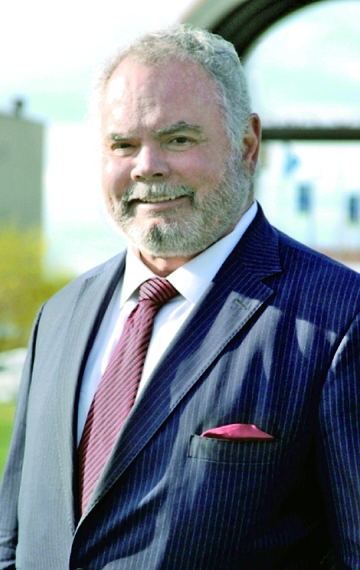
Mayor Mike Dunafon
The announcement by CBS Sports that it had agreed to a multi-year rights deal with Major League Rugby (MLR) to televise 13 games starting this spring, including a game of the week and two weeks of playoff action for MLB’s inaugural season, is a dream come true for Glendale and its many rugby fans.
MLR was formed earlier this year with seven teams, including the Glendale Raptors and teams from Austin, Houston New Orleans, San Diego, Seattle and Salt Lake City.
Glendale Rugby was the vision of the Chronicle Publisher Chuck Bonniwell, Michael Dunafon and Debbie Matthews, all of whom had played rugby. The team logo of a three-headed raptor represents the three founders.
The concept was to bring a sports team to Glendale which the town could rally around and bring a sense of community. As Chuck Bonniwell remarked, “Glendale wasn’t going to get a National Football League or Major League Baseball team, but rugby worldwide is the second most popular team sport after soccer, and little Glendale could make a mark, not only nationally but even internationally, with rugby.”
Mike Dunafon, now the mayor of Glendale, has been the relentless major driving force behind rugby in Glendale but it has not been an easy task. For its initial team in 2007 Glendale did not want to cannibalize the existing teams in the Denver metropolitan area so they placed ads in The Denver Post and Rocky Mountain News for new players and brought in players from across the country.
One of the keys to Glendale’s success was the early addition of Stanford educated Mark Bullock, who is now the Director of Rugby for Glendale. Bullock has coached with great success the men’s team, the women’s team and youth teams. His intelligence, tenacity and broad range of abilities has made him one of the faces of Glendale rugby.
Glendale built a world class stadium specifically for rugby with a seating capacity of 5,000 which can be doubled for special events. The city also built an adjacent venue with artificial turf that is open to the Glendale public for myriad sports in addition to rugby. Dunafon ensured that the Infinity Park Stadium was designed to be a state-of-the-art broadcast facility which now meshes perfectly with the national broadcasting standards of CBS Sports.
The Infinity Park Stadium has won numerous state and national awards relating to its field and turf management thanks to the extraordinary work of Josh Bertrand, Glendale’s Director of Public Works.
It was always envisioned that Glendale would compete at the highest level nationally which proved to be a challenge, not because of the quality of the Glendale team, but the state of rugby in the United States. The top level of American rugby when Glendale rugby started was the Rugby Super League which refused to admit Glendale due to petty jealousies by older more established clubs to a newcomer. By the time the Super League was willing to accept the Raptors, Glendale was no longer interested and the Super League folded in 2012. It was replaced by the Rugby Elite Cup which lasted only one year before closing in 2013, which Glendale also declined to join.
 National and international rugby bodies sanctioned America’s first professional rugby competition named PRO Rugby in 2016 which was owned and operated by a single individual, the quixotic Doug Schoninger, and also did not include Glendale. Schoninger was not up to the task and that league also folded after that single season (2016) amid acrimony and threats of lawsuits. Schoninger, in the process, lost millions due to his investment in professional rugby.
National and international rugby bodies sanctioned America’s first professional rugby competition named PRO Rugby in 2016 which was owned and operated by a single individual, the quixotic Doug Schoninger, and also did not include Glendale. Schoninger was not up to the task and that league also folded after that single season (2016) amid acrimony and threats of lawsuits. Schoninger, in the process, lost millions due to his investment in professional rugby.
In the meantime, during those years, Glendale competed in whatever top competition it could find, including winning USA Rugby’s Division I championship in 2011 and the Pacific Premier Championships in 2015 and 2016. In addition, Glendale’s women’s team, now known as the Merlins, was also excelling, winning back-to-back National Championships in 2014 and 2015.
The CBS Sports television contract elevates the MLR, and American rugby in general, to a level never reached before. It is expected the league will attract traditional power houses on both coasts, and Chicago to join in the near future.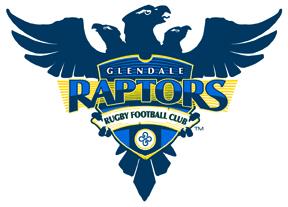
After a decade Glendale is now competing at the highest level nationally with country-wide television exposure thanks to CBS Sports. The Glendale team has some of the best players in the United States with international players from across the globe sprinkled in. It can be expected to compete strongly for the league championship.
The success of Major League Rugby is by no means guaranteed, but Dunafon and Glendale can be justifiably proud of the fact that the dream and vision, over a decade old, has been fulfilled. The future of Glendale rugby is bright and the upcoming season of Major League Rugby in Glendale should be one exciting ride.

by Mark Smiley | Nov 20, 2017 | General Featured
by Glen Richardson
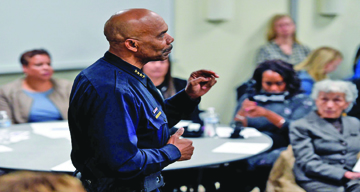 Denver Police have not implemented any recommendations from a 2016 audit meant to help officers avoid racial bias in patrol duties, a follow-up report in September 2017 finds. Denver Auditor Timothy M. O’Brien, CPA, made his original recommendations in a January 2016 audit of police operations, including updates to biased policing policies and demographic data collection.
Denver Police have not implemented any recommendations from a 2016 audit meant to help officers avoid racial bias in patrol duties, a follow-up report in September 2017 finds. Denver Auditor Timothy M. O’Brien, CPA, made his original recommendations in a January 2016 audit of police operations, including updates to biased policing policies and demographic data collection.
“It’s important for Denver Police policies to protect and serve all people equally,” explains Auditor O’Brien. “There is no way to tell if officers are stopping people without bias regarding race, gender or age if officers choose not to document demographic data.”
According to the American Civil Liberties Union (ACLU): Racial profiling refers to the practice by law enforcement officials of targeting individuals for suspicion of crime based on the individual’s race, ethnicity, religion or national origin. Criminal profiling, generally, as practiced by police, is the reliance on a group of characteristics they believe to be associated with crime. Examples of racial profiling are the use of race to determine which drivers to stop for minor traffic violations or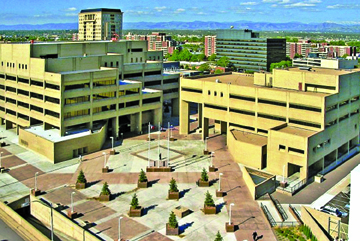 the use of race to determine which pedestrians to search for illegal contraband.
the use of race to determine which pedestrians to search for illegal contraband.
Secret House Surveys
The previously agreed-upon recommendation involved communicating with the U.S. Department of Justice’s Office of Community Oriented Policing Services for options on how to utilize the Community Policing Self-Assessment Tool (CP-SAT). This tool could help officers evaluate the effectiveness of community policing efforts over time. Instead, Denver Police said it conducted other surveys to get input from staff. The Denver Police Foundation also conducted an independent community survey. Auditors were unable to see these survey results or the contents of the survey. Denver Police shared no information regarding the independent survey, which the Denver Police Protective Association (PPA) keeps for internal purposes.
“We cannot assess whether either survey met the spirit of or captured content similar to the CP-SAT survey,” the follow-up report says. “As a result, we consider this recommendation as having not been implemented,” the report concludes.
Other recommendations the department previously disagreed with included updating its Biased-Policing Policy to include an annual assessment of collected demographic data, and requiring officers to collect data for all pedestrian and traffic self-initiated contact. Currently, officers only collect this data for encounters that lead to a citation, arrest or street check.
Double Standard?
Within weeks following the auditor’s report, an overwhelming majority of Denver police officers say they have no confidence in the ability of Chief Robert White to lead the department. In a news conference on Oct. 24 Denver Police Protective As sn. President Nick Rogers announced than a survey of 582 union members yielded a 94 percent “no confidence” vote.
sn. President Nick Rogers announced than a survey of 582 union members yielded a 94 percent “no confidence” vote.
The vote, according to PPA, reflects a perception by the rank and file officers that there exists a lack of transparency within the police administration and a double standard applies to conduct of high-ranking members of the police administration,” Rogers told the conference.
When asked if the union had ever issued a “no confidence” vote before. Rogers replied, “Never.”
PR Policing Policy
The police department has long touted its community-oriented policing philosophy. Denver Police first incorporated community policing into its operations in the 1980s. However, without demographic data from police encounters there is no way to ensure community-policing efforts are effective or equitable. The department says it has communicated with stakeholders, including community leaders, about ways to collect more information. However, there is no plan in place at this time for collecting personal data from individuals about interactions with police.
The Department of Public Safety has not implemented any of the recommendations made in the Police Operations — District Patrol audit report. Accordingly, Auditor O’Brien has determined that the risk associated with the audit team’s initial findings has not been mitigated.
Auditor Timothy M. O’Brien, CPA, has more than 40 years of auditing and accounting experience and strives to bring greater clarity, transparency and accountability to Denver’s city government for its residents. Elected in 2015, he is distinguished from his predecessors by being an actual professional auditor. He is a licensed Certified Professional Accountant and holds the designations of Chartered Financial Analyst and Chartered Global Management Accountant.
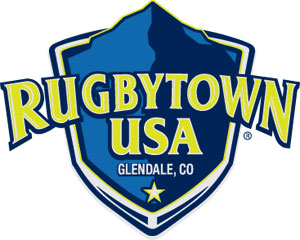
by Mark Smiley | Nov 20, 2017 | Glendale City News
by John Arthur
Writer for and on behalf of the City of Glendale
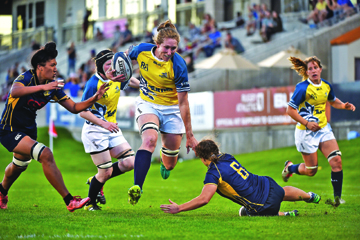
GLENDALE, CO – OCTOBER 7: Glendale Merlins Women vs Berkley All Blues at Infinity Park on October 7, 2017 in Glendale, Colorado. (Photo by Seth McConnell)
As Glendale prepares for the 2018 launch of Major League Rugby, the town also honors its storied history of attracting talented players. Two veteran Glendale ruggers, Hannah Stolba and Carmen Farmer, announced at the final home match at Infinity Park in October that they would hang up their cleats at season’s end. Even in retirement, however, both of these exceptional players intend to remain involved with the sport and with Glendale.
Stolba was born in Montana, and grew up playing basketball, eventually being awarded a basketball scholarship to Minnesota State University, Mankato. She picked up rugby during the offseason on the advice of a friend, and took to the sport quickly, “I loved it. I fell in love with the game and the challenge and mostly the people. Rugby was much more free form and I enjoyed that.” Before finishing college, Stolba began playing for the Minnesota Valkyries, even touring with the club’s Under-23 team in New Zealand.
After finishing college Stolba moved to Minneapolis and continued playing with the Valkyries for another six years, moving to Colorado in 2011. Among her many accolades, Stolba played with the USA Women’s Rugby Team from 2012 through the 2014 World Cup. Following the 2014 season, she casually mentions that she “thru-hiked the Appalachian Trail” (the longest footpath in the world, the nearly 2,200 mile trail stretches from Maine to Georgia), before spending six months playing and coaching in New Zealand in 2016.
Stolba says she chose Colorado not just for the outdoor lifestyle the state is famous for, but also because of the programming and facilities at Infinity Park. She notes that she still intends to be involved with the game — playing touch rugby and coaching — but that retirement from club play is meant to allow more time for hobbies and hiking. Asked what message she had for Glendale, Stolba was quick to thank the city and its people for their support: “It’s very uncommon in the U.S. to get picked out of a crowd for playing rugby, but we live in this unique pocket . . . thank you, for supporting us the way that you do. It is greatly appreciated from our whole program.”
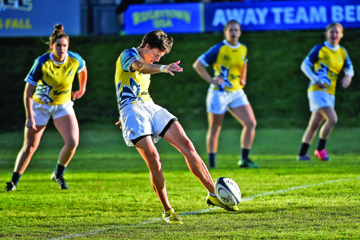
GLENDALE, CO – OCTOBER 21: Glendale Merlins Women vs San Diego Surfers at Infinity Park on October 21, 2017 in Glendale, Colorado. (Photo by Seth McConnell)
Carmen Farmer was born in Richmond, Virginia. She grew up in the state, attending college at Virginia Tech, where she played collegiate softball. After college she earned a law degree from the University of Maryland and practiced on the Eastern Shore of Maryland, not discovering rugby until some five years later. In an interesting twist of fate, the future Olympic rugby player discovered the sport after a conversation with an Australian while hiking Mt. Kilimanjaro.
Upon her return from Tanzania, Farmer found the Severn River Women’s Rugby Club in Annapolis, Maryland, and walked onto a practice a week later. 2012, her first year playing rugby, the team took second in the National Championships. Two years later Farmer played in the World Cup in France. She notes that during this time she played her first match at Infinity Park, facing a South African team in 2013.
Farmer played at Severn River for three years at the Division 2 level before moving to San Diego, where she trained with the Seven’s National Team. Following the Rio Olympics, she took a job with a Land Trust in Colorado and began playing for Glendale. Asked about what drew her to Glendale, she notes the program’s “rich history and high level of play,” and, with a smile, “the facilities aren’t too bad either.”
Farmer doesn’t have firm plans for retirement, but intends to focus more time on work. Even if she’s not on the pitch, however, she will remain a fan of the sport. Asked for final reflection on her time in Glendale, she extends a sincere thank you to the community for welcoming her during her short tenure with the team: “It has been an absolute pleasure getting to play here, and the support from the staff and the people of Glendale has been second to none.”
Though Farmer and Stolba both spoke fondly of their time in Glendale, the city, and rugby fans everywhere owe acknowledgment to these accomplished players as well. Through their tireless efforts on the pitch, their character, and their passion for sport, they have helped maintain Glendale’s position at the epicenter of rugby in the United States. Past is prologue in RugbyTown USA, and it’s just as bright as the city’s future.
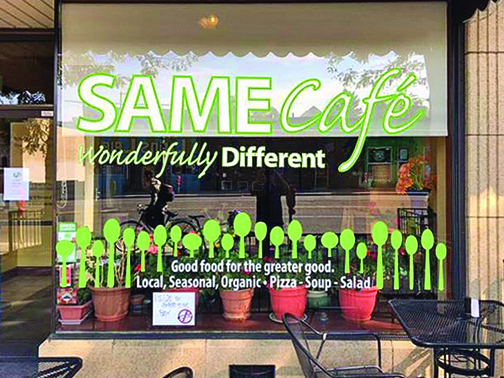
by Mark Smiley | Nov 20, 2017 | Travel
by Ruthy Wexler
 SAME Café’s mission is feeding the hungry. Its name stands for So All May Eat. But the café itself resembles an elegant little bistro, complete with outside dining.
SAME Café’s mission is feeding the hungry. Its name stands for So All May Eat. But the café itself resembles an elegant little bistro, complete with outside dining.
Nothing about SAME Café, at 2023 E. Colfax, says “homeless” or “charity.” That’s the uniqueness of this restaurant, where Cherry Creek residents, suburban folk, busy professionals — and people down on their luck — all get welcomed and well-fed.
Uniquely Different
I’ve ordered lunch, it looks delicious — but I stand confused. No prices listed, no cash register in sight.
How do I pay? I ask.
“You pay what you want,” smiles the girl at the counter.
After devouring the richly flavored soup (homemade vegetable stock, definitely) and relishing my pizza’s contrasting bites of apple, kale and blue cheese, I wonder: How could a “donation based” restaurant serve such exquisite food — and survive?
The answer, says Executive Director Brad Reubendale, is community. “We have the greatest group of volunteers and customers, who are invested in our succes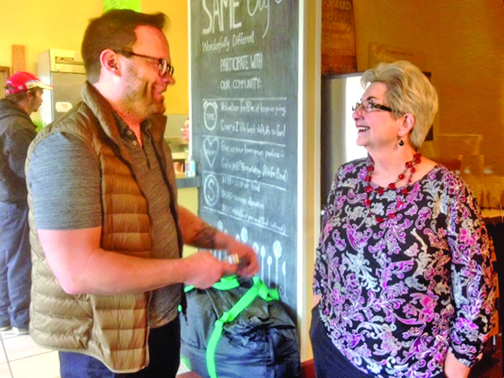 s.”
s.”
More and more groups now use the café for meetings. Increasing numbers book it for private parties and events. The café’s good intentions toward the community have brought win/win results.
Doing Well
Having supported local farmers, the café now receives so much donated produce, they only have to purchase basic food. They support local businesses — and a local businessman, and their landlord sets their rent below market value.
“What I see over and over, if you trust people to be helpful and intelligent, for the most part, they’ll be that way,” says Reubendale. “People on the poverty line pay a dollar for lunch. Others know this and give way more than the meal’s worth”
“We eat here a lot,” says Laura Mueller, lunching with fellow retired physician Danica Larson. “We want to support their mission. And the food is amazing. So healthy!”
Healthy food — where it all started.
History
In 2003, Brad and Libby Birky were at a crossroads. An IT consultant, he yearned to be a chef. But Birky wanted no part of the late-night restaurant lifestyle, so they researched other options. Both had volunteered at soup kitchens, but the disconnect between those who doled out the food and those who ate it didn’t sit right. And the food was not healthy.
What if a soup kitchen served food so good that people with money chose to eat there, too?
There was one such restaurant, they discovered. After visiting One World in Salt Lake City, the Birkys became 100% committed. Banks refused to loan them money so they cashed in their IRAs. The city’s red tape almost botched 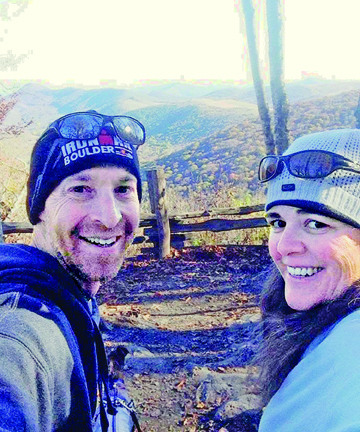 the project. But finally, on October 20, 2006, the SAME Café opened.
the project. But finally, on October 20, 2006, the SAME Café opened.
Something Incredible
The Birkys’ original idea — giving everyone access to good, healthy food — remains the café’s driving force.
People get interested in the café’s mission. They return because of the food. Each day, two kinds of soup, two kinds of salad, two pizzas, and one cookie are offered. Natural-ingredient menus planned by an exuberant chef feature Strawberry Soup, Braised Brisket Stew, Roasted Mushroom and Quinoa Salad.
Tables for two line the walls, but the long table down the café’s center affords an unusual opportunity: eating alongside someone from a very different life. “Something incredible happens when people who have millions sit down next to someone experiencing homelessness,” reports Reubendale.
So Much Change
A volunteer describes when someone who’s been living on the street comes in to eat. “They light up, like, ‘All this nice stuff for me? I’m not looked down upon here?’”
“It’s beautiful. No one brags about money here. No one’s shamed if they don’t have it.”
People living below the poverty line are treated with as much dignity as a wealthy person, says Reubendale. “That’s why we don’t give handouts. If someone wants free food, we say, ‘Here, please eat. Then we ask how they’d like to participate in our community. One hour of work pays for a meal.’
“When someone’s ready, we have a great resource list. A computer they can use to research jobs or housing.”
“So many lives have been changed here,” Reubendale muses. “Not just the hungry. Rich people who needed purpose. Sick people who began eating healthy, then got well…”
People often asked the Birkys how to start a restaurant just like SAME. Now the couple is on a road trip, visiting the 50+ cafés across the country they inspired and mentored.
Talk about change.
Holiday Giving
The café has just created wooden circles that say SAME Café: One Free Lunch.” Think of driving down Speer Boulevard with a bagful of these tokens to give out! Purchasing them provides two good works in one: giving to SAME Café’s mission — and connecting a person in need with a service that could change their lives.
You can buy the tokens with a donation (the café suggests the full price of meals, around $12). Or email brad@soallmayeat.org, who will get the tokens to you.
The SAME Café is open Monday-Saturday, 11 a.m. to 2 p.m. For more information visit www.soallmayeat.org.

by Mark Smiley | Nov 20, 2017 | Editorials
 Perhaps the greatest upset of the November 7 election in Colorado was the approval by Denver voters of the citizen referred Initiative 300, better known as “Green Roof Initiative,” by a clear 54% to 46% margin. Denver resident Brandon Rietheimer and a group of environmental activists prevailed against the odds. They started this summer gaining signatures and submitted over 4,700 this past August to make the ballot.
Perhaps the greatest upset of the November 7 election in Colorado was the approval by Denver voters of the citizen referred Initiative 300, better known as “Green Roof Initiative,” by a clear 54% to 46% margin. Denver resident Brandon Rietheimer and a group of environmental activists prevailed against the odds. They started this summer gaining signatures and submitted over 4,700 this past August to make the ballot.
The initiative mandates new buildings larger than 25,000 square feet must dedicate some of their roof space to trees, plants, solar panels or a mix. Existing buildings are not included unless they either expand to above 25,000 square feet or they need a new roof.
The initiative was opposed by all the forces and money that control the Mayor’s Office and the rest of the city. Rietheimer and his hardy band were outspent according to the financial disclosure records by an incredible 12 to 1 margin with the proponents raising only $20,000. Conversely the “no” side had over a quarter million dollars in their pockets to bend the voting public to their side.
The “no” contributors were a Who’s Who of those who wish to destroy Denver for their own purpose led by developer Pat Hamill’s Colorado Concern organization which has dozens of Denver fat cats whose only real “concern” is lining their own pockets at the expense of the public.
Will green roofs work? Will the Denver Botanic Gardens build an elaborate garden and display on top of its parking garage to the delight of thousands of visitors ever y year? It goes without saying that the same will reduce noise and pollution in the city which is never a bad idea.
y year? It goes without saying that the same will reduce noise and pollution in the city which is never a bad idea.
The Mayor’s greedy friends argued that it would increase the cost of developments in the city and, of course, it will. Similarly, any open space requirements or parking requirements also raise the cost of the potential developments until they are waived by the city’s corrupt Community Planning and Development Department. The mayor’s friends believe that the only real purpose of parks and open space is to be monetized for commercial enterprises which, of course, they did to Ruby Hill Park and Overland Park Golf Course.
They also love to see parks used for massive drainage holes to save land for development on the I-70 project. Wouldn’t want the Mayor’s friends’ land to be used for such a purpose.
If you hate the idea of greenery on top of roofs don’t despair — it’s not going to actually happen. Mayor Hancock after passage of the Initiative stated, “We have always made a good-faith effort to implement the initiatives — once the people have spoken, that’s our job.”
He is, of course, lying.
Initiative 300 provides that it can be amended after six months with two-thirds vote of the City Council. Pat Hamill and his friends own more than two-thirds of the City Council and it will be slowly amended until the Initiative becomes virtually meaningless.
Moreover, any implementation would have to go through the Department of Community Planning and Development. Its Executive Director is the corpulent Brad Buchanan. He proved with his interpretation of no parking required for micro units that he will perversely interpret virtually any provision of law for benefit of high density developers. Rietheimer and his band of rebels will find that Buchanan will determine Ordinance 300 to mean exactly the opposite of what they intended. Buchanan is Denver’s very own Queen of Hearts from Alice in Wonderland where any word in Ordinance 300 means “just what I [Brad Buchanan] choose it to mean — neither more nor less.” Mr. Rietheimer unfortunately is going to get to learn how things really work in today’s City and County of Denver.
But citizens for the first time ever during the Hancock Administration have shown that they can defeat all the King’s horses and all the King’s men even when outspent 12 to 1. For the first time, Pat Hamill’s regime has suffered a loss. Let us pray that this is just the beginning and not a one-time aberration.
— Editorial Board


















